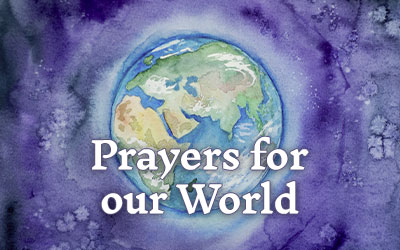Afghanistan: 'Hurtling towards Collapse'

Afghanistan is on the brink of a starvation crisis, with more than half its population — some 22.8 million people — projected to face acute food insecurity this winter, according to a report co-led by the United Nations’ World Food Program and Food and Agriculture Organization.
Nearly 19 million Afghans, or 45 percent of the population, are experiencing “high levels of food insecurity,” according to the Integrated Food Security Phase Classification (IPC) report. That number is expected to jump to 22.8 million between November and March unless immediate action is taken.
“Children are a particular concern because they’re affected at the time but we also know the consequences of hunger on a child can affect them the rest of their lives,”.
Afghanistan’s economy has declined sharply in recent months, in large part because of the evaporation of international aid when the Taliban returned to power in August. Banks have run out of cash. Remittances from Afghans abroad have declined because of the coronavirus pandemic.
The problems began before the Taliban takeover. Some 665,000 people were internally displaced because of conflict between January and September, the United Nations found.
Also, an acute drought that started in late 2020 led to reduced snow in the mountains, hurting farmers who depend on snowmelt for their crops and livestock. About 70 percent of the population lives in rural areas.
Swedish and Pakistani ministers warned that Afghanistan will shortly collapse into chaos unless the international community acts rapidly. Afghanistan plunged into crisis after the hardline Islamist Taliban movement drove out the Western-backed government in August triggering the abrupt end of billions of dollars in assistance to its aid-dependent economy.
"The country is on the brink of collapse and that collapse is coming faster than we thought," Swedish development minister Per Olsson Fridh told Reuters in Dubai.
He said economic freefall could provide an environment for terrorist groups to thrive, but that Sweden would not channel money through the Taliban, instead boosting its humanitarian contributions through Afghan civil society groups.
Many countries and multilateral institutions have halted development assistance but increased humanitarian aid since August, reluctant to legitimize the new Taliban rulers.
More: Washington Post, CNN
Pray: giving thanks that larger numbers of endangered Christians and their families are getting out again after a multi-day hiatus when it was impossible to get them through the border to safety. Let’s continue to pray that all who need to get out would be able to do so; and that effective means would be found to resettle them in surrounding nations.
Pray: that this will be an opportunity to bring in a great harvest for the Kingdom now that they are out of the oppressive conditions inside Afghanistan and can freely hear about and follow Jesus! Let’s pray to the Lord of the harvest to send workers into this harvest. (Matthew 9:37-38)
Pray: that those leaders of the Taliban who are murderous and with ill intent would be removed from power in the new regime so women’s rights will be respected and international aid organizations can come back into the country to help in the developing humanitarian crisis.
Praise: God for reports of hundreds of lives committed to Jesus across this nation each month since August, despite the calamitous and uncertain situation.
Pray: That in this time of desperate need, the people of Afghanistan will know the love of God (Romans 8:35)
Pray: For wisdom of governments in how best to provide humanitarian aid without legitimising the Taliban so that the needy will be supported.
Pray: For those who are displaced, homeless and hungry. That they will find shelter in the short term and be able to build lives and livelihoods in the longer term.


